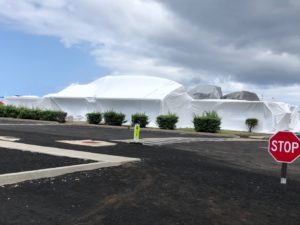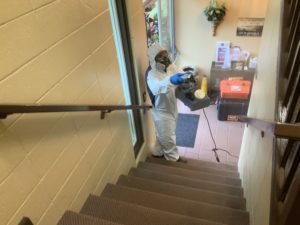Looking for Access?
Cur nutrix cantare?Est camerarius accentor, cesaris.Eposs sunt solems de varius liberi.
Register TodayCur nutrix cantare?Est camerarius accentor, cesaris.Eposs sunt solems de varius liberi.
Register TodayCur nutrix cantare?Est camerarius accentor, cesaris.Eposs sunt solems de varius liberi.
Login NowLike every new year, 2020 started with a lot of promise for both business and revenue growth. Yet, even well-laid plans can be interrupted by something bigger than all of us – a pandemic. While the year may not have gone as planned, our strength and resilience as an industry has shone through like it always does in challenging times.
When the pandemic became front-page news in March and a cascade of shelter-in-place orders were issued by states, fumigators rose to the challenge. By thinking outside the box – shifting gears to keep revenue coming in and ensuring the safety of their employees by implementing a multitude of new safety protocols – fumigators were able to weather the storm.
Everyone, some more than others, felt the effects of job cancellations and slowed revenue early in the pandemic, with some states taking a bigger hit than others. Luckily, the government assistance in the form of Paycheck Protection Program loans also helped fumigators hold on until business eventually started to rebound, although the speed and extent varied widely by region.

World Pest Control saw a decrease in bed bug fumigations in 2020 due to difficulty with homeowners finding a place to stay while the work took place.
In the middle of the country, the rebound has been slower. Bed bug jobs took a hit early on and were down overall for some, driven mostly by the challenge of finding somewhere to stay during the fumigation. People also appear to be holding on to the money more and spending less because of the uncertainty, said Shonda Meitler,
co-owner of World Pest Control in Sylvan Grove, Kansas. While the work has started to slowly pick back up, time ran out on making up the lost ground.
“You can come back, but you’re not going to catch up,” Meitler said. “You only have so many days in the year and that’s just what it is.”
Fumigators in Florida also saw residential fumigations get postponed during stay-at-home orders, largely due to homeowners not having a place to stay in the interim.
“The biggest headache for the consumer was trying to find a place to stay,” said Ron Dues of Dues Services, Inc. in Stuart, Florida. “They didn’t want to stay with relatives because of COVID, so it was a little bit of a quandary.”

For Dues Services, Inc., a large commercial contract allowed the business to weather a temporary slowdown at the onset of the pandemic until drywood termite season ramped up to residential business and ultimately business growth.
Dues Services, Inc., was lucky enough to have secured a big commercial contract prior to the onset of the pandemic, which helped hold them over until business picked back up.
To keep revenue flowing in, other Florida fumigators shifted their focus to commercial fumigations. Many used the opportunity to fumigate commercial properties, such as restaurants, schools and tourist attractions that were suddenly empty now that everyone was stuck at home.
Of course, nature doesn’t stop because there’s a pandemic, so once the drywood termite season was in full effect in Florida, the residential business rebounded quickly.
“Ultimately, it didn’t really affect us too much,” said Dues, who reports 15% growth over 2019.
Other fumigators, like Ian Mateo of Pest Tech Hawaii in Honolulu, added disinfectant services to not only bring in additional revenue, but also assist in the community, often donating the services to help keep people safe. For Pest Tech Hawaii, adding the service made sense because they already had the equipment and chemicals needed in-house.

Some fumigators, like Pest Tech Hawaii, added disinfectant services to help their communities and bring in additional revenue.
“It hit me that there are things that I already do, there is equipment I already had, there are resources that I have access to and there’s training that we have already done,” Mateo said. “I’ve been training my team to do disinfection services for five years now.”
In states that require wood-destroying insect reports as part of real estate transactions, low interest rates on mortgages helped bring in additional business.
“Within a few weeks, with interest rates going down and people staying home with COVID, the demand for tent fumigation for drywood termites skyrocketed,” said Harvey West, vice president of Coastal Fumigators in Houston, Texas. “We have had one of the best years in eons. It far exceeded our expectations; we are up over last year.”
Even for those who managed to increase business, 2020 was in no way easy for anyone in the fumigation business. Yet, those hit hardest remain optimistic about the potential of the new year.
“Hopefully, 2021 will be a bigger and brighter year,” Meitler said.

With low mortgage rates driving real estate transactions, fumigators, like Harvey West of Coastal Fumigators in Houston, Texas, saw demand for tent fumigations for drywood termites skyrocket. Ultimately, the increase in demand helped Coastal Fumigators end the year strong with an increase in revenue year over year.